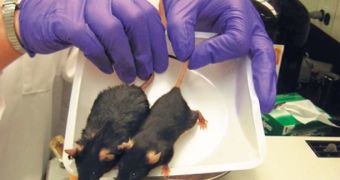A team of experts has recently been able to produce more data on the correlations that was observed between obesity and infertility in women.
According to the new work, it would appear that experts may have previously been mistaken about the causes that led to the two conditions being linked to each other.
The new research proves that, in fact, the infertility is caused by an over-abundance of fertility hormones, which are released by the pituitary gland.
This structure remains sensitive to the signals released by insulin, even when other tissues and cells types become impervious to the actions of the hormone.
In obese individuals, the chemical can be found in chronically high levels, and experts believe that this contributes to making muscles and other tissues unresponsive to its actions.
In the new study, which was conducted on unsuspecting lab mice, it was demonstrated that elevated levels of insulin caused the pituitary gland to become unable of regulating the release of fertility-associated hormones.
This in turn lead to excessive concentrations of the chemicals in the body of the animals, which caused fertility as an immediate side-effect, Science News reports.
“If you disrupt the hormone levels and the timing, it’s very easy to disrupt fertility in females,” says Johns Hopkins University (JHU) expert Andrew Wolfe, the leader of the research team.
In the mice study, it was shown that infertility could be avoided if the experts blocked the insulin receptors on the surface of the pituitary gland.
“I just didn’t think that insulin could be such a big role-player, especially in the pituitary [gland. But the new data] is so clear, it’s so blatant, that I really have to think more about this,” says Gary Hausman.
He is a physiologist at the US Department of Agriculture’s (USDA) Agricultural Research Service.
“We have to pay attention to the direct action of insulin on the reproductive tract,” says Mark Lawson, who is a reproductive biologist based at the University of California in San Diego (UCSD).
The new data could lead to the development of novel drugs against infertility, that could be aimed at blocking, or inhibiting, the insulin receptors on the pituitary gland.

 14 DAY TRIAL //
14 DAY TRIAL //